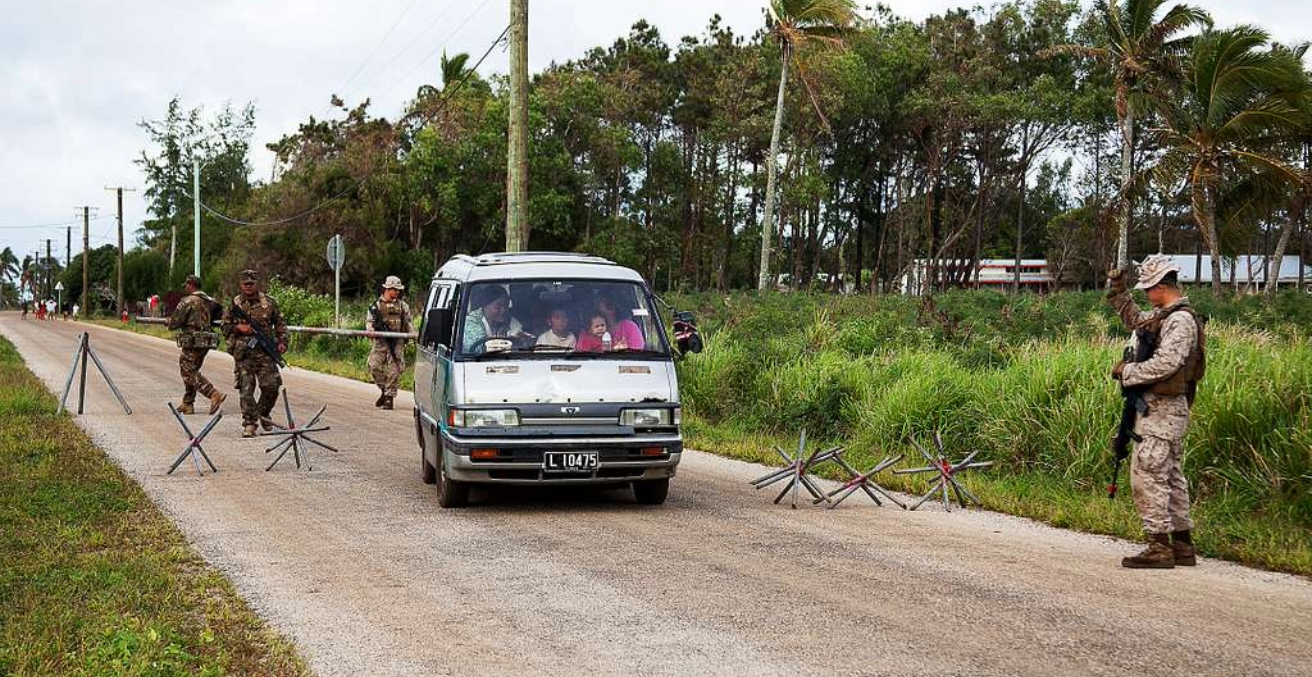As rigorous debate ensues on the decision to deploy Australian troops to Iraq in response to the threat from the Islamic State, Professor Ramesh Thakur stresses the importance of Parliamentary oversight as a necessary tenet of democracy in the decision to go to war.
At a panel discussion at the ANU last year chaired by the AIIA director, former PM Malcolm Fraser provoked laughter in his audience by saying that, no matter how strong the ministers, only a weak PM would fail to get his way in cabinet on a major policy decision. On the same panel, former Secretary of Defence Paul Barratt provided a very convincing account of why the need for speed in responding to an urgent crisis is a non-issue. In order to be deployed into active combat operations overseas, militaries need some advance preparations. Remember how many months it took for the US to mobilise for the first Gulf War in 1991? Besides, no major crisis blows up overnight.
Last week Anthony Bergin and Russell Trood argued in The Australian that subjecting a decision to commit Australian forces to combat operations to parliamentary vote would risk a fractious debate and a delay sufficient to endanger the lives of civilians who need our protection and possibly also our own soldiers. A Greens motion for such a requirement was rejected decisively by a combined Coalition and Labor vote. This Monday former Fraser and Barratt argued the case for prior parliamentary approval.
Democracies need urgently to modernise procedures and structures for going to war with full parliamentary debate and sanction, instead of by government fiat based on the instincts of a strong-willed PM or through subterfuge and deception. To delink this from Coalition governments, consider this. In recent decades, many Australians have found some Labor leaders/PMs to be quite dysfunctional and afflicted with badly flawed judgment. The decision to take a nation to war is the most solemn of all foreign policy responsibilities. Most of these leaders would have been able to get their individual strongly held decisions through their cabinets. Under our present system, just like John Howard in 2003, any of them could have committed us to war on personal whim or conviction. Do we really want to stay with this instead of requiring the government, regardless of whether it is Labor or Coalition, to present its case to parliament, supported by suitably sanitised evidence drawn from our own and allies’ intelligence services?
Our diggers have parents, partners, brothers and sisters. Putting them in harm’s way into combat theatres requires extraordinary levels of personal and family courage and commitment. We owe it to them to try and get it as right as we possibly can in the quality of our decision-making. This will ensure a better proportion of right decisions and outcomes coming out of the political process. In 2003 George W. Bush, Tony Blair and John Howard pitted their judgment against the wisdom of the people. Going by their writings and speeches since, all three are like Philip II of Spain: “No experience of the failure of his policy could shake his belief in its essential excellence,” historian Barbara Tuchman informs us.
The Iraq War mega-disaster was richly foretold at the time. The decade since has done little to soften and much to validate the criticism. Prime Minister David Cameron tabled a motion in parliament on 29 August 2013 seeking approval for air strikes on Syria. The ghost of Iraq 2003 hovered unmistakably in the debate, with coded (“We must not let the spectre of previous mistakes paralyse our ability to stand up for what is right”) and explicit (“The well of public opinion has been well and truly poisoned by the Iraq episode”) references to it. Parliament rejected the motion by a 285-272 vote.
Subjecting the decision to parliamentary vote is not an argument to reject the war option, but to require that the decision be based on informed consent where political leaders are prepared to stand up and be counted. Hillary Clinton famously accused rival Democratic primary candidate Barack Obama of having made one speech as the sum total of his foreign policy credential. She was right. What she would not acknowledge until later was that he proved prescient in that one speech and, even more critically, she herself had got it disastrously wrong in voting for the war. It’s the two together that allowed voters to judge their respective competence to be in charge of US foreign policy as president and commander in chief.
Or consider John Kerry, now the Secretary of State. The Gulf and Iraq wars were the two most critical votes of his political life in the US Senate. Foreign policy is supposed to be his forte but he got it wrong on both occasions: he voted for the 2003 Iraq war, having voted against the 1991 Gulf War. This gave voters a good basis on which to judge his potential as the Democratic presidential candidate.
Democracies are “powerful pacifists.” They almost never fight one another but when their anger is aroused to the point of war, they tend to prevail because by then their decision to fight is supported by a national consensus. Of course, governments unsure of their case will try to bluster their way through secretively. In that case the decision is likely to remain contentious, the nation could be badly divided, and success is less assured.
If the nation is in peril in the face of a clear and present danger, or when facing calculated evil like the Islamic State in Iraq, it is inconceivable that Labor and Coalition will not close ranks. The votes of all MPs individually and the political parties collectively will be recorded for posterity. Those who make the right judgment call, whether to support or oppose the decision to go to war, will be rewarded by voters. Those who get it badly wrong will be punished. It’s called democracy. To deny MPs their day in the house betrays contempt for the people’s representative and thus for the people.
Professor Ramesh Thakur is a former UN Assistant Secretary-General and Director of the Centre for Nuclear Non-Proliferation and Disarmament, Australian National University.




